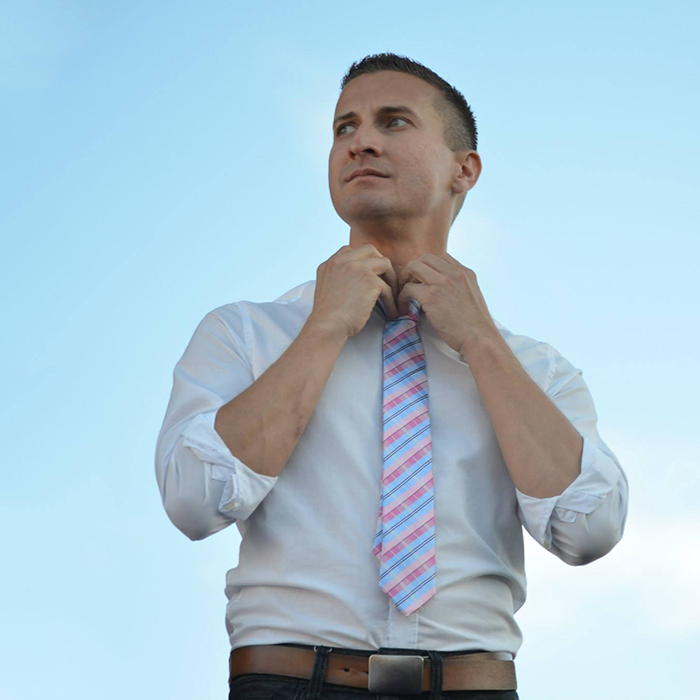Dear Pride Family,
Growing up there were two people who showed me the importance of accessibility. My mother is a retired teacher who oversaw the department for students who were blind and low-vision. She was a ferocious advocate for her students. My little brother lived through leukemia as a young kid in the 80s, but the journey left him blind, deaf, quadriplegic, nonverbal, and with severe damage to his brain and nervous system. He is one of the most resilient people I know.
I used to spend my summers growing up volunteering at the Imperial County Office for Exceptional Children so I could spend more time with both of them. For the students there and my brother at home, I got to learn and work on speech therapy, physical therapy, orientation and mobility, and primary care support. Those experiences and upbringing helped me see how the world treated folks with disabilities and how often our environment is not built in a way that all of us could access it.
When I joined the Pride Family in 2011 my heart was lifted to see we were in the early stages of making Pride more accessible. We had a volunteer-led program stewared by staff member Cheli Mohamed called the Diversity Task Force whose job it was to pick apart our organization and find productive solutions to ensure we were the best version of ourselves and that we could serve as many people as possible.
Our Accessibility Department began by examining the rally, parade, and festival bringing in ramps, more seating, better signage, and ASL interpreters. Our website and newsletters are now more accessible to screen readers. We have more accessible shuttle and transportation options to our events as well as sensory break areas. We added designated accessible entry and box office lines to the festival. We provided free mobility device rentals and wheelchair charging stations at the Festival.
This year we were able to hire our first full-time Accessibility Coordinator whose efforts go beyond Pride weekend and ensure that all of our meetings and events year-round are as accessible as possible. They train our volunteers and staff every year on disability competency and accessibility best practices. Our department’s work has even been recognized around the world and has been used as a model to help train other local and national organizations including helping to make the world’s largest LGBTQ Conference, Creating Change, more accessible. The first of our Pillars of Justice is Disability Justice to ensure that our policy and advocacy work includes access for all.
Creating more accessible spaces is an ongoing journey, and I couldn’t be more proud of our team’s vision, efforts, and what they’ve brought to our community and beyond. Our movement only works when everyone in our community is at the table. When we can all access our community, our community can Thrive!
With Pride,
Fernando Z. López
Pronouns: they/them/theirs
Executive Director
San Diego Pride
